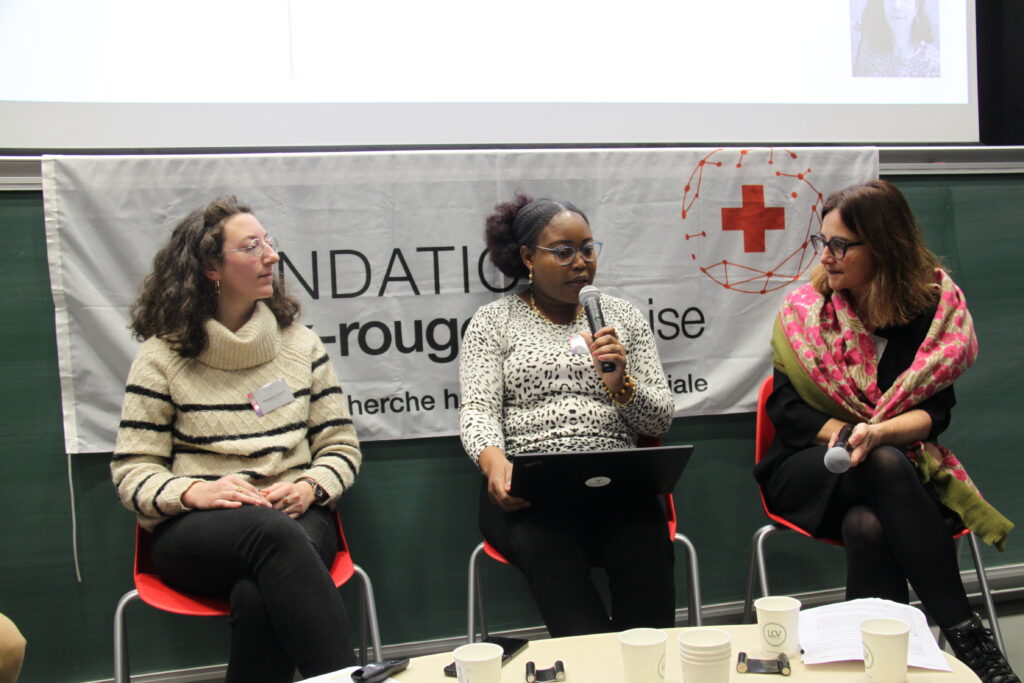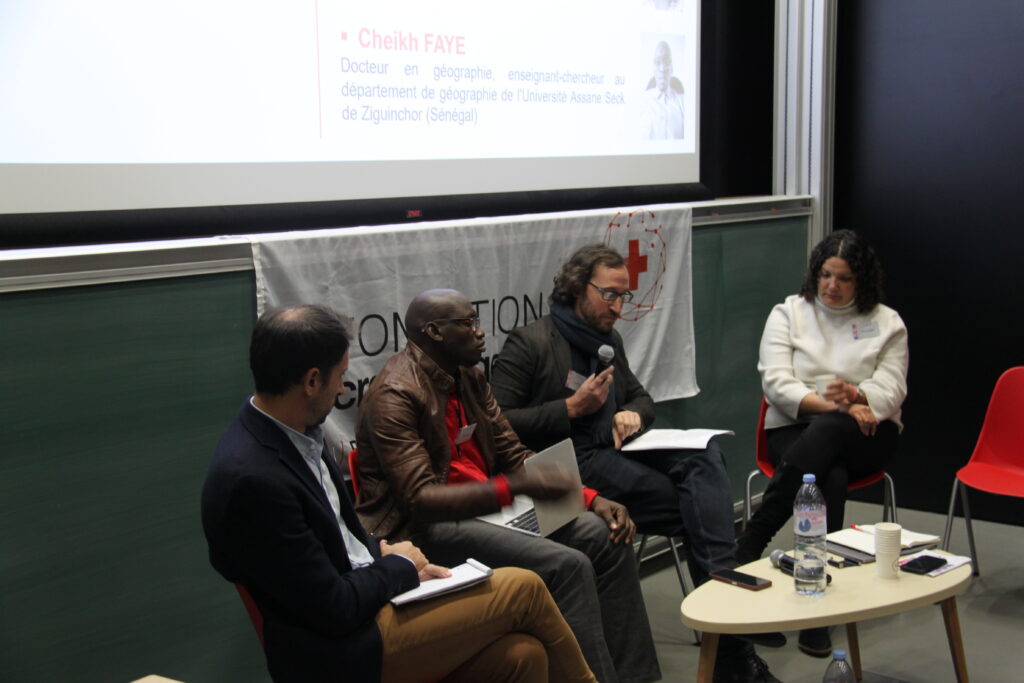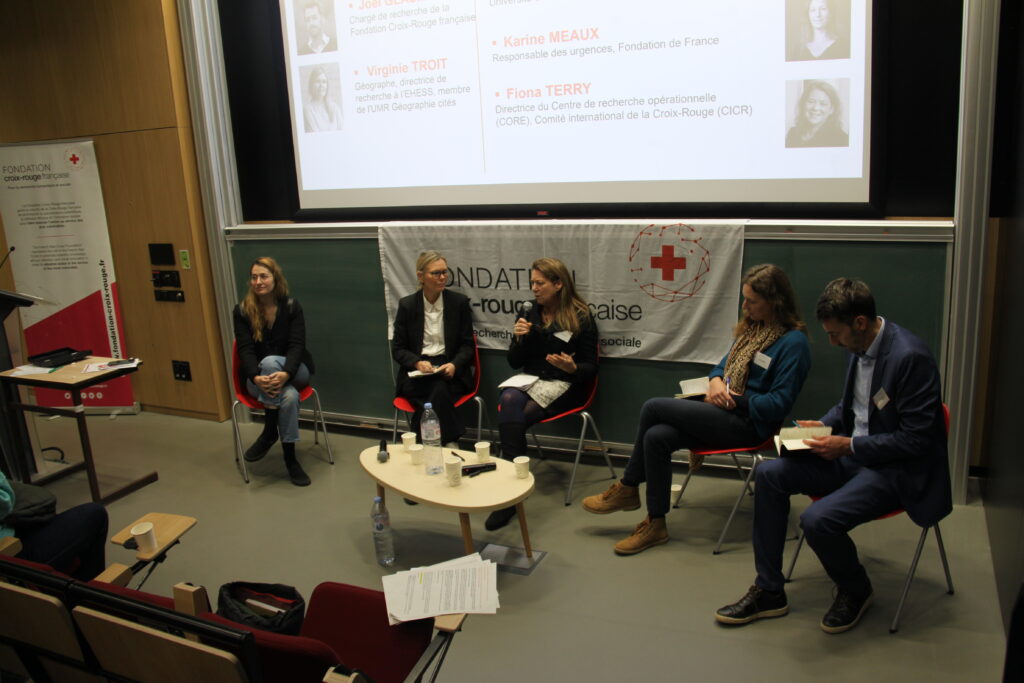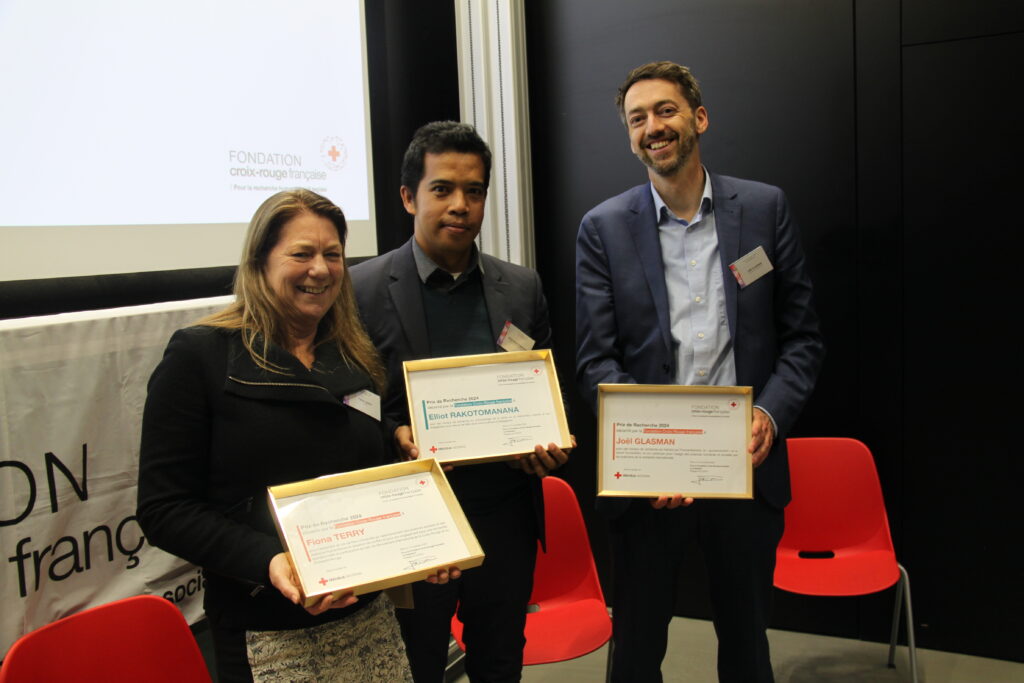On November 13, 2024, the French Red Cross Foundation held its annual scientific event, The Foundation Encounters, at École des Mines in Paris. This year’s theme, “Knowledge(s) in Action,” brought together researchers and practitioners to address contemporary challenges in humanitarian and social action.
In his opening speech, Frédéric Kletz emphasized the importance of “conducting science with and for society,” highlighting the need for close collaboration between academic research and on-the-ground practices. His words resonated with contributions from Foued Nasri and Elliot Raktomanana, who further reinforced the shared responsibilities of scientists and humanitarian actors. The event centered around three major themes.
Theme 1: “The Complexity of Supporting People in Exile”
Speakers explored the effects of increasingly restrictive migration policies and the diverse trajectories of displaced individuals, often resulting in unprecedented vulnerabilities. Dr. Ayoko Akouavi Justine Dogbe Foli, an expert in developmental psychology, presented her research on how unaccompanied minors shape their own paths. The discussion, moderated by Camille Schmoll, a geographer and research director at EHESS, provided a platform for dialogue between researchers and field practitioners. Hermann Gnanga Loua, an immigration advisor for the French Red Cross, and Bérangère Lucotte, coordinator of a mobile support program for exiled individuals, shared practical insights, illustrating the need for more personalized and adaptive approaches

Theme 2: “The Resilience of Communities Facing Disasters and Climate Change”
Against the backdrop of increasing environmental crises, this session highlighted local strategies enabling communities to adapt and rebuild their lives. Dr. Dima El Khouri, a geographer, presented her work on risk perception and social cohesion in Lebanon. Meanwhile, Cheikh Faye, a researcher and educator in Senegal, explored the humanitarian adjustments needed to address flooding in the city of Ziguinchor. Moderated by Jan Verlin, a sociologist at Lyon 3 University, the session also benefited from the expertise of Florent Del Pinto, head of emergency operations at the International Federation of Red Cross and Red Crescent Societies. He shared concrete examples of resilience observed on the ground.

Theme 3: “Challenges and Prospects for Locally-Led Humanitarian Action”
This session tackled the obstacles and opportunities related to localizing humanitarian aid—a pivotal topic in global reform since the 2016 World Humanitarian Summit. Diane Alalouf-Hall, an associate professor at the University of Quebec in Montreal, presented her research on emerging practices within the Center for International Studies and Cooperation (CECI) in countries such as Senegal, Bolivia, and Nepal. Fiona Terry, director of the Operational Research Center (CORE) at the International Committee of the Red Cross (ICRC), contributed her expertise on operational and structural challenges in implementing localized approaches. Moderated by Joël Glassman, the discussion illuminated recurring tensions between local and global approaches while proposing practical strategies to enhance coordination between local and international actors. These discussions offered promising perspectives for improving the effectiveness and equity of humanitarian action.

This annual event highlighted the importance of fostering dialogue between science and practice, with the ultimate goal of sustainably improving humanitarian and social responses. It offered a valuable opportunity to strengthen connections among researchers, practitioners, and decision-makers as they work together to tackle the challenges of today’s world.
To conclude the day, the Foundation presented its prestigious research awards, recognizing innovative and promising projects in the humanitarian and social fields.






